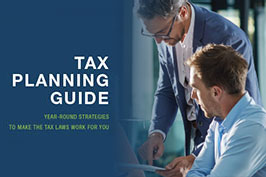Why do people fall behind on taxes?
Taxes are a fundamental part of our financial responsibilities, but despite their importance, many individuals find themselves falling behind on their tax obligations. In 2022 alone, Americans owed over $120 billion in back taxes, penalties, and interest, according to the IRS. Here’s why:
- Back Taxes. One of the primary reasons people fall behind on taxes is the accumulation of back taxes. These are unpaid taxes from previous years, and the longer they go unpaid, the more they can snowball into a significant financial burden.
- Penalties and Interest. When you owe taxes and fail to pay them on time, you may be subject to penalties and interest. These additional costs can make it even more challenging to catch up, as they increase the overall amount you owe.
- Calculations and Self-Employment. Complex tax calculations and self-employment can also contribute to falling behind on taxes. Self-employed individuals often have to estimate their tax payments and may struggle with budgeting for these obligations accurately.
To address these challenges, individuals should work towards being proactive in managing their taxes. In this article, we will further explore the reasons behind why people fall behind on taxes and discuss strategies to get caught up and stay on track.
CTA – What makes us different

Getting caught up
If you’re falling behind on your taxes, don’t despair; there are steps to take to get back on track:
Start by assessing your current income, factoring in any additional revenue streams like freelance work, rental income, or investments. Understanding your total income is essential in determining how much to allocate to tax payments and how you file.
Next, analyze why you fell behind on taxes in the first place. Did you underestimate your tax liability? Did you face unexpected financial challenges? Once you understand the root cause, it’s simpler to figure out how much you owe, for which years, and to whom (state, federal, or both).
The IRS offers various programs and options for individuals who are behind on their taxes. You can set up a payment plan, negotiate an offer in compromise, or even request a temporary delay if you are facing financial hardship. Depending on your circumstances, you might be eligible for programs that can reduce your tax burden or even forgive some of your debt.
Given the complexities that can come with back taxes, it’s often a good idea to consult with a tax professional. They can offer advice and guidance for your specific financial situation. Plus, they can help you take advantage of all available deductions and credits. Remember, filing correctly can make a significant difference in your tax liability.
CTA – Your tax planning guide

Staying caught up
Effective cash flow management is essential. Ensure you have enough liquidity to meet your tax obligations when they are due. One option is to set up a separate savings account specifically for taxes.
Working with an accountant is the most effective way to ensure you stay caught up on taxes. There are accounting services tailored for individuals with CPAs that accurately calculate your tax liability, plan for payments, and file your taxes correctly. Some CPA firms offer full-service tax and financial consulting which will assess your income, and help you plan and reach your financial goals in turn assuring you avoid falling behind on taxes in the future.
